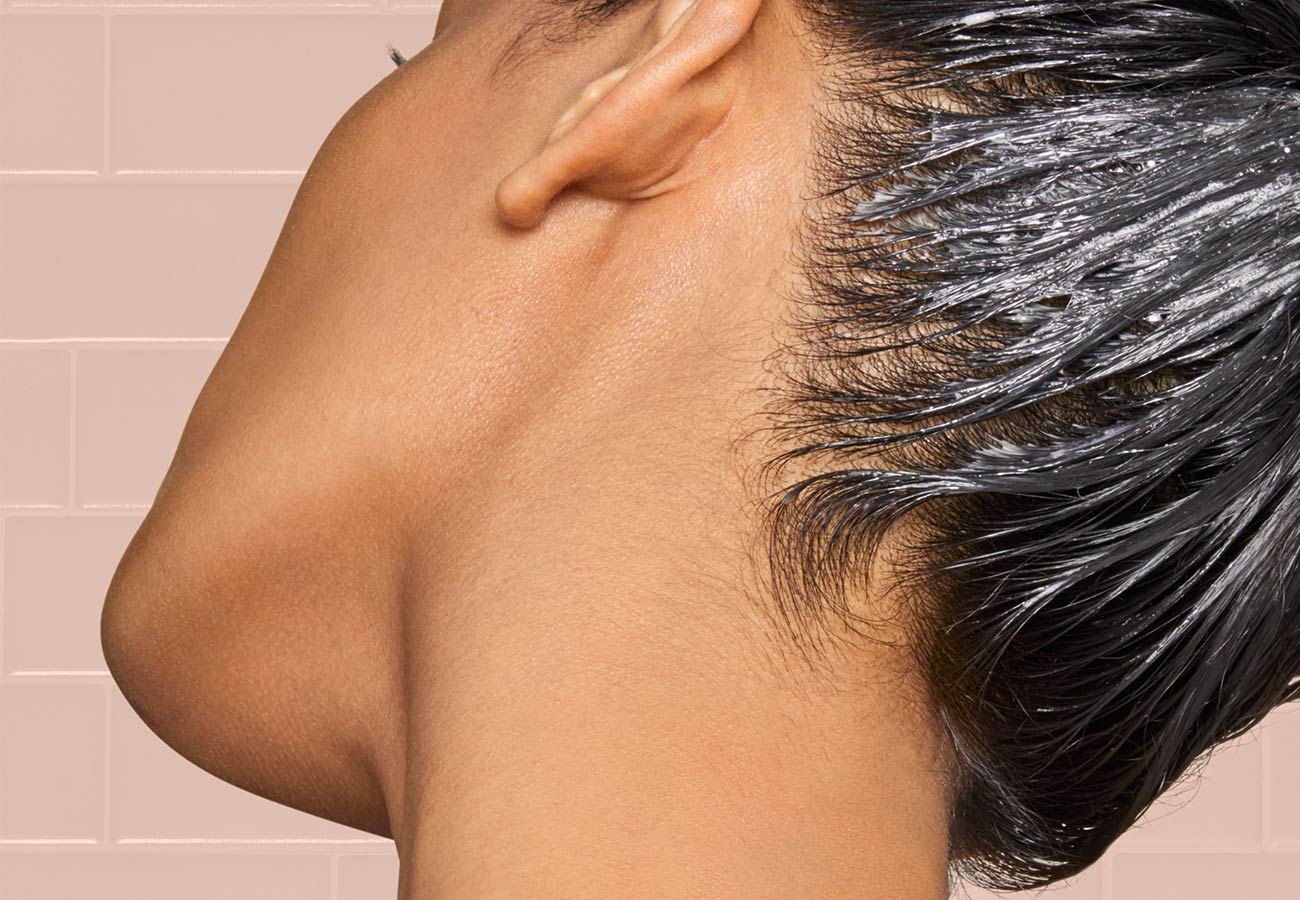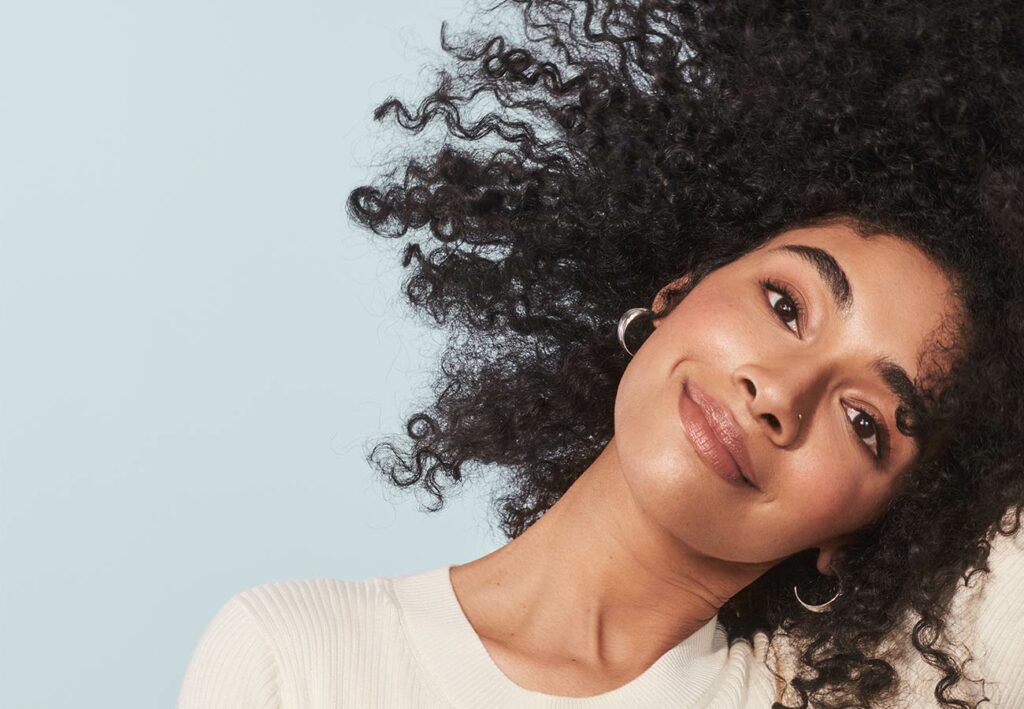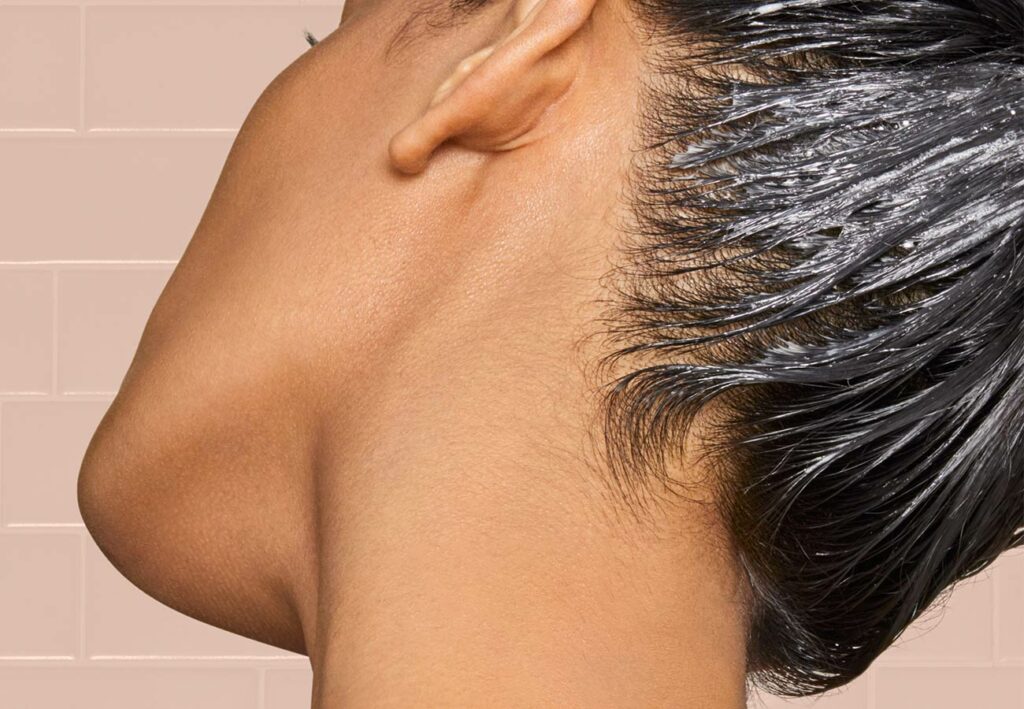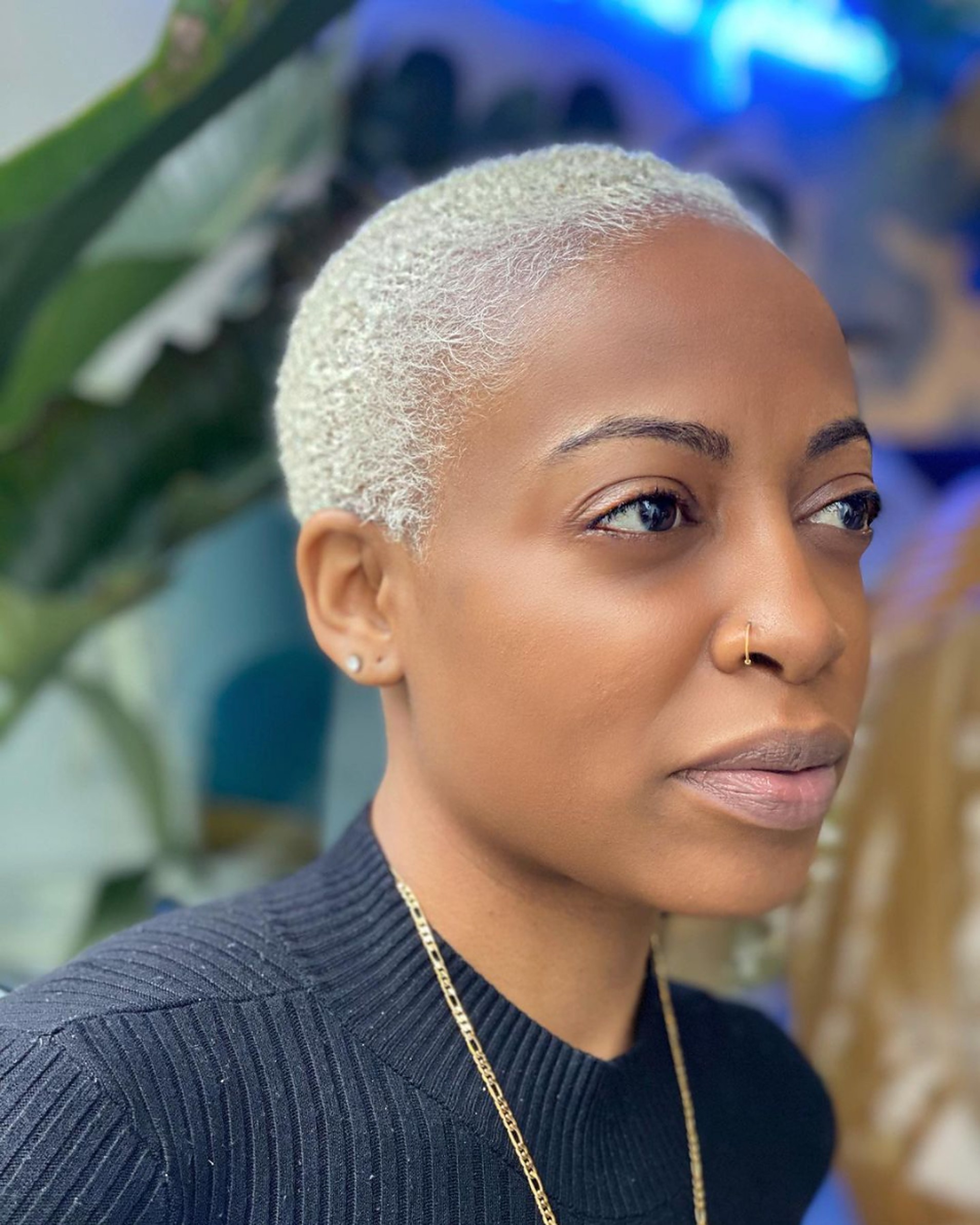What are the signs of oily hair?
There’s a difference between having oily hair and hair that just needs a wash. Here are some of the signs that what you might be experiencing is an overproduction of oil:
- Your hair is constantly oily or waxy (even after washing)
- You have an itchy scalp
- You experience flakiness
- You notice clogged pores and blemishes on and around the scalp
- You feel like your hair is never clean enough
Is having oily hair bad?
We may be concerned with how our oily hair looks. But too much oil can affect the health of our strands, too. If the sebum glands on your scalp get too clogged, this can lead to a few problems that can affect the health of your scalp and your hair.
Flaky scalp
The bacteria that cause your scalp to itch and flake thrives on excess oil and needs it to survive. While an oily scalp in itself won’t cause flakes, when combined with other factors, it can make the problem worse.
A flaky scalp is not only unpleasant but can cause red, inflamed patches of skin to form on your scalp. This condition can be painful and even affect the ability of your hair to grow properly.
Clogged pores
In some cases, the pores on your scalp (and even on your face and back!) can become clogged due to excess sebum. When you combine this with certain kinds of bacteria, you get the perfect combination for blemishes to start forming.
Hair loss
Clogged pores are a problem because they can also interfere with your hair growth. Your body regularly forms and sheds new skin cells in a process called cellular regeneration.
However, when you have too much oil on your scalp, these dead skin cells get “stuck” in the pore, preventing new ones from coming to the surface. This can affect the ability of your hair to grow as it should and can even lead to hair loss.
What causes hair to become oily?
Your scalp and hair get oily for the same reasons that your skin does. Basically, the oil glands that are located within your hair follicles produce sebum, which is a mix of triglycerides, fatty acids, wax esters, squalene, and cholesterol — phew!
We may not always appreciate it, but this oily, waxy substance is actually really important for protecting your skin and hair from moisture loss. It does so by acting as a barrier on the scalp’s surface, shielding it from the elements, while keeping your hair naturally moisturized. But there are several reasons why some people produce more oil than others.
1. Overwashing
When you wash your hair too often, you strip your hair of its natural oils, which also contain vital nutrients. To compensate for this loss, your scalp goes into overdrive mode, producing more oil than is necessary.
2. Dirty air
The dirt and dust in your environment can accumulate on your scalp and hair, which, unfortunately, can lead to you feeling more greasy (even if you’ve got your hair routine down to a science).
3. Hormonal changes
Changes in your stress hormones can make your hair follicles go into overdrive, producing much more oil than necessary. These hormonal changes can be caused by emotional stress, lack of sleep, and even your menstrual cycle.
4. Your diet
Just like with the skin on your face, eating certain foods can lead to increased oil production and even breakouts! Some culprits to watch out for include sugar and dairy. But we’re all unique, so even foods you would never suspect can have an impact on your scalp health.
5. Untreated skin conditions
Certain skin conditions can make oil production worse by trapping dead skin cells on the surface of your scalp. If your hair routine, environment, and lifestyle can’t be to blame for oily hair, then a dermatologist may be able to diagnose the underlying cause.
How can I prevent oily hair?
While oily hair is partially an inherited trait, for the most part, it’s under your control. Try a few of these tips to keep oily hair at bay:
- Don’t wash your hair every day, as this can make your scalp go into sebum overproduction mode to compensate.
- Use a balancing, sulfate, and paraben-free shampoo that will restore your scalp health.
- Consider taking a supplement to improve your scalp and hair health.
- Get your nightly dose of shut-eye, as lack of sleep can increase sebum production.
- Consider what role your environment plays in making your hair greasy.
While it would be great to lead a life in which we get enough sleep, don’t get exposed to pollution, and keep a strict hair care routine, we know that’s not always possible. In this case, a nourishing dry shampoo can be a lifesaver and keep your hair looking clean and shiny in-between washes.
How should I style oily hair?
When it comes to oily hair, the last thing you might feel like doing is letting it down. Hairstyles can be an exciting alternative to letting your locks loose. Here are a few favorite styles that you can try out.
Sleek ponytail
For this classic and glamorous look, oily hair will actually work to your advantage. That’s because you probably won’t need any gel or mousse products to give you that slicked-back look. To get this style, simply brush your hair back into a high ponytail and secure it with an elastic. For bonus points, use a scrunchy that pops out.
Embrace the wave
Wavy hair is the best texture for hiding greasy strands. To get heatless waves, spritz your strands with a texturizing spray and tie your hair into braids. After about half an hour later, you can loosen them up and enjoy a whole new look.
The half-bun
This is literally the most effort-free hairstyle ever invented — both in terms of the time it takes to do it and the low-key vibes it exudes. All you have to do is section off the top part of your hair and pull it back into a loose bun. Et voila! Those who admire your new style will be none the wiser.
Cover it up
For those days when you have no patience to mess around with hairstyles, covering up your strands is the best solution. Invest in a funky headband or a luxurious silk scarf to hide your roots while looking super chic at the same time.
Summary
Oily hair isn’t only annoying, but it can also cause some serious problems for your scalp and hair health. Thankfully, there are many things you can do to keep oily hair at bay. But if all else fails, the right dry shampoo will always be there for you.





